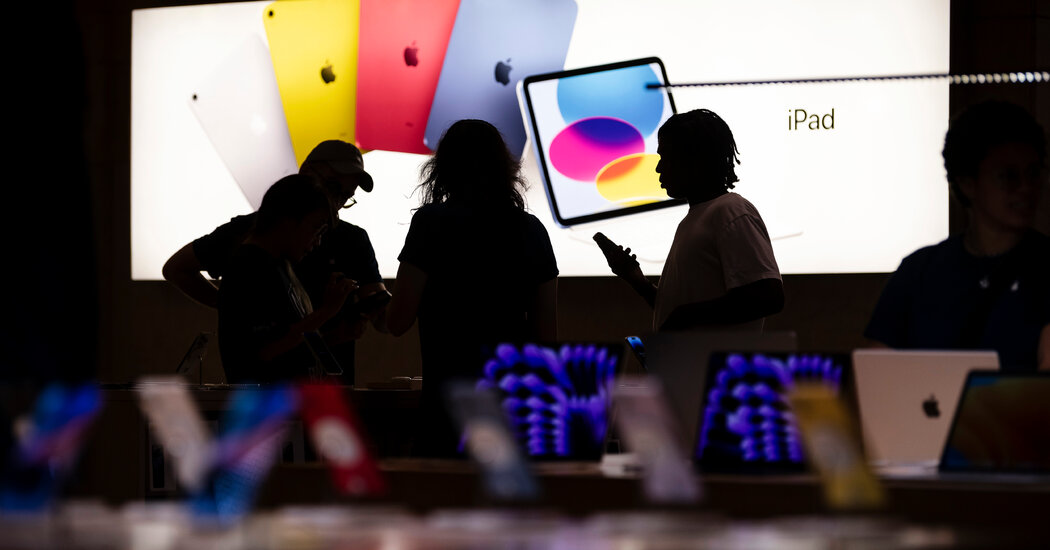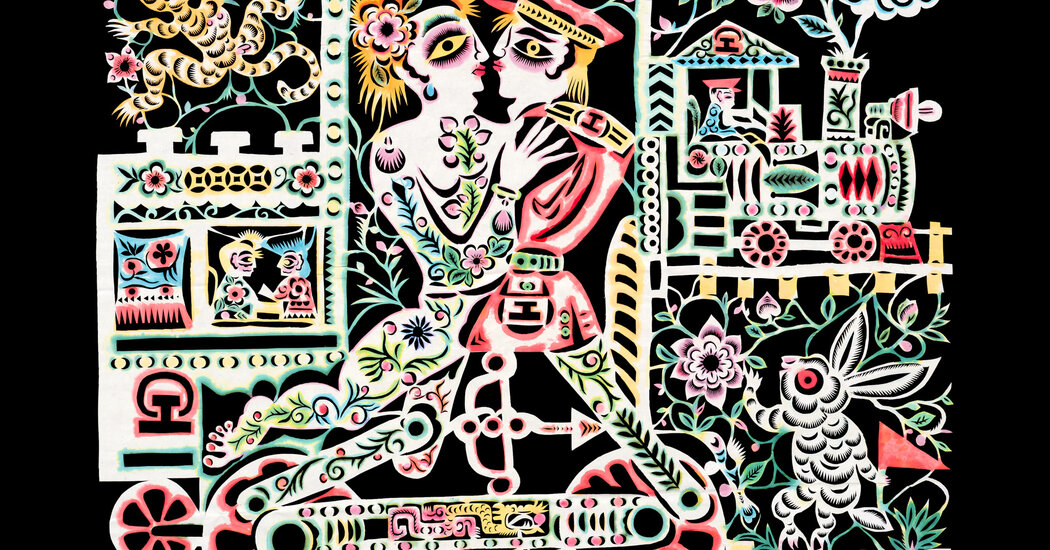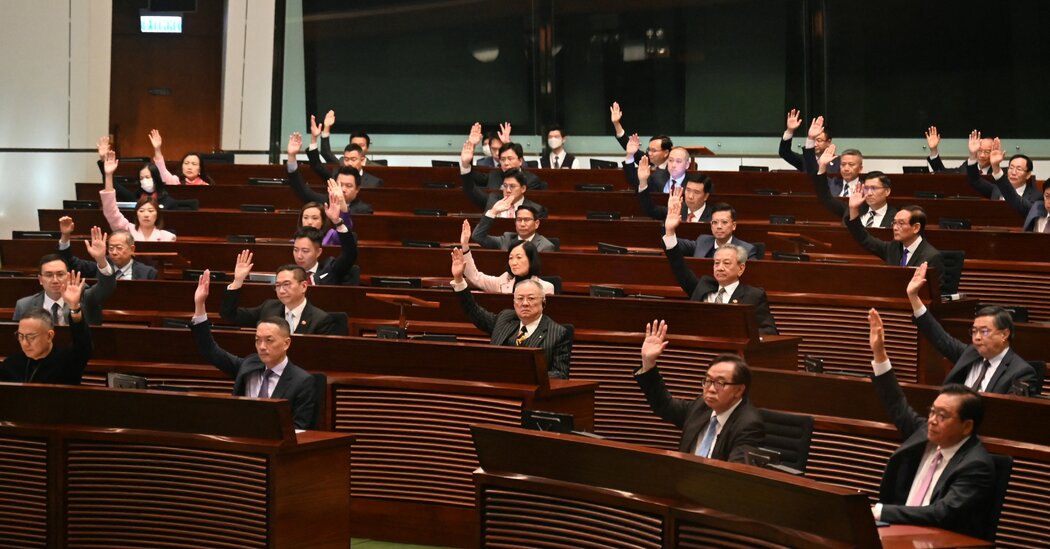For more than a decade, Apple could do almost no wrong. The iPhone made it the world’s most valuable company. The App Store helped launch businesses such as Uber and Airbnb. And the company’s new products made it a player in health, Hollywood and finance. Now, the difficulties are piling up. The Justice Department filed an antitrust lawsuit against Apple on Thursday for giving its own products advantages that it deprived rivals of having. The suit is the latest in a series of actions brought against the company by regulators…
Category: NYT
Where Are Hong Kong’s Leading Pro-Democracy Figures Now?
In 2019, Hong Kong erupted into the most stunning expression of public anger with Beijing in decades. Protesters broke into the legislature and vandalized it. They bought full-page advertisements in international newspapers, criticizing the government. Lawmakers hurled unsavory objects in meetings to protest unpopular bills. In the years since then, China has waged an expansive crackdown on Hong Kong to crush the opposition. Beijing directly imposed a national security law on the city in 2020 that gave the authorities a powerful tool to round up critics, including a prominent pro-democracy…
A Queer Chinese Artist Finds Liberation Through Folk Art
In the years he hid his sexuality from his children and village neighbors, Xiyadie would take short-bladed scissors to rice paper and give shape to unfulfilled dreams. At first glance, his creations conform to traditional cutout designs of animals and auspicious symbols adorning doorways and windows in China. But a closer look at the shapes — birds, butterflies and blossoms perched on twisty vines — reveals bodies conjoined in the throes of intimacy or separated by brick walls. The artist, 60, who goes by the pseudonym Xiyadie, was born in…
Mainland Chinese Flocked to Hong Kong’s Top Talent Visa
To some foreign expatriates, Hong Kong has lost its appeal as an international city and no longer feels like home since Beijing took a heavier hand in its governance. But for many former mainland Chinese like Angelina Wang, it has become a more attractive place to live and work. Ms. Wang, in her early 30s, was feeling stuck in her job at a state-owned finance company in Shenzhen, a mainland city just across the border, when she read about a Hong Kong visa for professional workers. She quickly applied. As…
In Hong Kong, China’s Grip Can Feel Like ‘Death by a Thousand Cuts’
Once one of Asia’s most high-flying cities, Hong Kong is now grappling with a deep pessimism. The stock market is in the tank, home values have tumbled and emigration is fueling a brain drain. Some of the hottest restaurants, spas and shopping malls that local residents are flocking to are across the border, in the mainland Chinese city of Shenzhen. “It pains me to say Hong Kong is over,” Stephen Roach, an economist and a former chairman of Morgan Stanley Asia long known for his optimism about the city, wrote…
U.S. Accuses Two Men of Stealing Tesla Trade Secrets
A Canadian man who lives in China was arrested Tuesday and held in New York after he and a business partner were accused of trying to sell secret battery manufacturing technology belonging to Tesla. Federal prosecutors in Brooklyn asked a judge to hold Klaus Pflugbeil without bail on a charge of theft of trade secrets. He was arrested after meeting with undercover agents Tuesday on Long Island and trying to sell them technology used to produce battery parts, the office of the U.S. attorney for the Eastern District of New…
Hong Kong Adopts Sweeping Security Laws, Bowing to Beijing
Hong Kong on Tuesday passed national security laws at the behest of Beijing, thwarting decades of public resistance in a move that critics say will strike a lasting blow to the partial autonomy the city had been promised by China. The new legislation, which was passed with extraordinary speed, grants the authorities even more powers to crack down on opposition to Beijing and the Hong Kong government, establishing penalties — including life imprisonment — for political crimes like treason and insurrection, which are vaguely defined. It also targets offenses like…
What to Know About Hong Kong’s Article 23 Legislation
Hong Kong passed national security legislation on Tuesday, giving officials in the Chinese territory more power to curb dissent, 21 years after mass protests forced the government to backtrack on a plan to introduce such laws. The legislation targets political offenses like treason and insurrection with penalties as harsh as life imprisonment and expands the scope of what can be considered criminal behavior. Local officials have said it will close gaps in a security law that China’s government imposed on the territory in 2020 after months of huge antigovernment protests.…
Hong Kong Security Law Could Damage City’s Image as Financial Hub
Paul Chan, the top finance official of Hong Kong, traveled to Paris, London, Frankfurt and Berlin last September to lure foreign investors. Last month he abolished taxes on foreigners’ purchases of Hong Kong real estate. And he is soon set to host an international art show, as well as conferences for big money funds and advisers to wealthy families. Mr. Chan’s brisk work pace represents an attempt to shore up Hong Kong’s role and image as the financial hub of Asia. But that effort is now colliding with a move…
Blinken Warns China Against Armed Attack on Philippines
Secretary of State Antony J. Blinken warned China on Tuesday that an “armed” attack against Philippine vessels in the South China Sea would trigger a mutual self-defense pact between Washington and Manila, a reflection of rising tensions in the region that risk dragging the United States into armed conflict with Beijing. But in a sign that the United States hopes to de-escalate the situation, Mr. Blinken, on a visit to Manila, gave no indication that recent Chinese provocations — which include ramming Philippine vessels and blasting them with water cannons…









